Yachting Monthly
- Digital edition


How to prepare for your Yachtmaster Offshore exam
- Theo Stocker
- August 16, 2024
In an age of digital navigation and walk ashore pontoons, how hard can the RYA Yachtmaster Offshore be? Theo Stocker prepared to take the test to find out

Many very competent and highly experienced yachtsmen and women don’t have any qualifications at all and are content to keep it that way, but for some reason, not being a Yachtmaster bothered me. I was pretty sure I was up to the standard, but I didn’t know.
Once you’ve got the ticket, you become an RYA Yachtmaster, something I’ve wanted to do for years. My friend Andrew and I have been talking about doing it since before his son Daniel, now 16, was born. Perhaps it was time to finally get on with our RYA Yachtmaster Offshore.
Every course I have done up to this point, from RYA Dinghy Level 2 all the way up to Coastal Skipper (some 20 years ago) has been one of the RYA’s ‘course-completion’ qualifications – do the week and if you can do what’s on the syllabus, you get the ticket, signed off by your training centre.
The RYA Yachtmaster Certificates of Competence (Coastal, Offshore and Ocean), however, are run by the RYA under the authority of the Maritime Coastguard Agency (MCA) and as such, they are the pinnacle of training for amateur sailors, and the start of the ladder of commercial qualifications, required for anyone who wants to work as a professional seafarer. You have to meet the pre-entry requirements, but passing is based purely on how you fare during a potentially gruelling day-long practical exam.
It’s now 51 years since the RYA took over examining Yachtmasters from the Board of Trade (now the MCA) in 1973, and Yachting Monthly was, in a small way, involved in shaping some of the practical seamanship elements of the exam.
Clearly, a lot has changed in the intervening years – navigation technology, engines, deck-gear, marinas, and not least the boats themselves. I was eager to see how the RYA Yachtmaster scheme has changed with the times, and if, like many other aspects of sailing, it has simply become easier, or whether it is still the challenging test it always was.

The crew (L-R): Matt Sillars, Andrew Eastham, Row Staples and Theo Stocker
What was I letting myself in for?
From the outset, the RYA were keen to emphasise that Yachtmaster is not an attendance-based course, but a one-day exam in which an examiner will form an objective opinion of your abilities, and will recommend you to the RYA/MCA Yachtmaster Qualification Panel to become a Yachtmaster, or not.
Technically, no instruction is required before the exam and the theory course is not compulsory. However, taking the exam is a significant investment of time and money if you’re not confident of passing, and you will certainly need theory knowledge of the level of the RYA Yachtmaster Offshore shorebased course, with practical experience and skills to match that, to stand any chance of passing.
It is strongly recommended, therefore, that you have a few days’ preparation, ideally immediately before the exam, with the same boat and crew as you’ll have for the exam so you’re at the top of your game. You don’t want to be getting to know the foibles of a boat or crew whilst trying to exude an air of calm and knowledgeable competence.

A hearty meal every evening, and the occasional beer, keep the crew going
Many sailing schools offer places on a Yachtmaster preparation course, normally of five days, for four candidates, with two days of examination at the end of it, as only two candidates can be examined in any one 24-hour period, the exam being a marathon 8-12 hours for one person, and 10-18 hours for two. No more than four candidates can be examined at a time, as they are long days for candidate and examiner alike.
It was also made abundantly clear that while we had four days to prepare, this was not a course on which we could be taught what we needed to know; this should have been gained over our years of experience. The week’s aim was to run through the whole Yachtmaster syllabus to strip away any bluster, revealing to the cold light of day our weaknesses and bad habits.
Rough edges would be polished, but if we were learning new skills for the first time, then we probably were not quite ready for the exam just yet. No pressure!
What Yachtmaster Offshore instructor Matt Sillars says
The week is not a course to learn to be a Yachtmaster Offshore. You need to have done 90% of the work beforehand. The preparation days are about checking skills and finding where you need more work, rather than being taught skills. It’s also very difficult to fake experience and an examiner will spot someone exaggerating their skill set very quickly.

Matt helps Theo and Andrew with some last-minute revision of tidal corrections
Getting prepared for the Yachtmaster Offshore
As I prepared for the week, I quickly found I’d had significant ‘skills fade’ in my detailed knowledge of the Collision Regulations, particularly lights, shapes and sounds, and buoyage light characteristics.
You’ll need a good working knowledge not just of the most common parts of the rules, but of the whole lot, including some of the more esoteric corners of the rule book. Professional seafarers are expect to know every word verbatim; Yachtmasters need to be getting at least 80% of the lights and shapes right, and importantly be able to demonstrate that they understand them, to pass.
Article continues below…

The history of the RYA Yachtmaster scheme as it turns 50
The RYA started examining Yachtmaster candidates in 1973 but in fact the very first Yachtmaster certificates were awarded much earlier.…

12 expert skills to take you beyond Yachtmaster
Rupert Holmes outlines the skills that mark out the good sailors from the great ones, with experience and reflective learning…
The lights shown by trawlers shooting gear, towed vessels of the bizarest dimensions and sizes, and the sound signals of vessels in all sorts of pickles were initially, at best, a little foggy.
It’s easy to feel that in normal, coastal sailing you come across these intricacies so rarely as to make them irrelevant, but the point of the Yachtmaster is that you are able to operate at sea not as an amateur, but on a par with professional seafarers.
Indeed, with a commercial endorsement to your RYA Yachtmaster, you could easily be one of them, if you ever fancied a career change. Knowing the rules also diminishes the chances of ending up in front of an inquest. The detail is fiddly, but it’s not impossible to learn.

Everyone knows the motoring cone, but do you use it? And what about the other shapes?
IRPCS are something you just have to know, and it would be a real shame to fail your Yachtmaster because you hadn’t brushed up beforehand. For ease, many examiners will use packs of flip cards to test your knowledge of lights, shapes, buoyage and collision avoidance during a quiet moment on exam day. It’s not meant to be an interrogation, but if you’re getting more than two in ten wrong then the examiner won’t be able to pass you.
One little tip with sound signals are that it is easy to get overwhelmed once you start adding in all the extra sounds to the basic signals, but there are only a few distinct meanings to remember. These then get added together, but can easily be broken into their composite parts to help you decipher their meanings.

A safety brief can be tailored to your crew, their level of experience and their familiarity with your boat
Yachtmaster Offshore training
The forecast for the week couldn’t have been much better. Typically, the only day there wasn’t sunshine and a decent breeze was the day we had the photographer on board, but the rest of the time there was enough wind to get our teeth into – there’s nothing like trying to sail onto a mooring if there’s no wind, and it’s often a stiff breeze that makes marina manoeuvring tricky.
The aim for day one was to run through the full gambit of skills that would be tested in the exam for Matt to get an idea of where Andrew and I were at. With the food and kit stowed, the day began with the usual safety briefings, engine checks and discussion regarding firefighting.
Safety briefs
A good skipper will always make sure their crew have had a safety brief. If you sail with the same crew on a regular basis, you don’t need to give them the same briefing every time, but an occasional reminder of the main points is probably a good idea, as the details quickly fade. For us, the safety brief was about making sure the people we had on board knew where everything was on a boat they hadn’t sailed before.

Keep tethers and first-aid kit somewhere accessible
For a crew of novices, we would have included things like how to use a fire extinguisher and how to put on a lifejacket, but for experienced sailors, it is sufficient to show them where safety kit is, so things like tethers, fire-fighting equipment, seacocks and softwood bungs, as well as how the distress and MOB functions on this boat’s particular chartplotter and VHF radio work, are all relevant.
On deck, knowing were the MOB recovery kit, engine fire extinguisher and liferaft are is all important.
I’ve been doing engine checks for years, and it’s easy to be familiar with your engine at a basic level. Various acronyms exist to help remind you about what to check, but advice has changed recently to add in one sensible step to an engine check and that is to isolate the engine before opening the case.
You may do this already, but if you don’t, there’s a risk that in the usual melee of getting ready to set sail, someone on deck goes to start the engine while you’ve got your hand on the drive belt. Better switch off the isolator so this can’t happen until you’re done.
The acronym I found most helpful was: IWOBBLE: Isolate; Water (strainer); Oil (level and colour, engine and transmission); Belt (wear and tension); Bilges (empty); Leaks (no oil or fuel spills); Exhaust (clean, and water once the engine has started).

Every boat is different, such as MOB marking systems
It’s worth making sure any experienced sailors on your boat also know how to do some of these so that you as skipper don’t have to be the one with your head stuck in the engine bay when the engine fails on the way into harbour.
Dabs of high-vis paint on the relevant fittings can help direct you to the correct nut to loosen or tighten for each job.
In the exam, you may not have to bleed the engine, but you will need to talk through how you would handle various engine emergencies, from fires to fuel starvation, overheating and prop wraps, so spend time getting familiar with the fuel, water and cooling systems on your boat’s engine so you can point at the right bits.

Marina manoeuvres fill many cruising sailors with dread
Yachtmaster Offshore marina manoeuvres
With the boat and crew ready to go, it was time for our first go at ‘pontoon bashing’. It’s always going to be a little nerve-wracking handling a boat you don’t know well in the confines of a windy and tide-swept marina, so it’s a useful tool for the instructor to quickly get a gauge on your level of confidence and ability.
As someone who normally keeps a boat on a mooring and anchors at every available opportunity, tricky marina berths are something that I rarely visit, so this was a skill that needed a little more attention for me.
‘Parking’ can sometimes look a little boring to the outside observer, but serried ranks of expensive boats and vicious bow rollers and anchors makes this an exercise to really focus the mind. It also forces you to attempt berths that in normal sailing you would often rather avoid, but may be forced to use in a busy marina.

Check prop kick astern when alongside, then try out how the boat responds in open water
Get your bearings
To start, we took time to check the depth sounder was accurate using a leadline, and checking whether it was set to depth below the keel or below the waterline – a critical piece of information. While alongside, put the engine astern and have a look which side the prop wash emerges. The stern will kick to the other side when engaging astern.
We checked the boat’s pivot point too in ahead and astern, and how long the boat needed to get steerage in either direction. All of this can be done in open water.
Assessing the wind and tide is essential before you start a manoeuvre, factoring in what these will be doing in the berth itself, and not just out by the marina entrance. At Mercury Yacht Harbour, when the tide is in full spate, you can get a nasty diagonal cross-current across the berth, and some owners simply avoid coming or going at anything other than slack water.
Letting the boat come to a stop will show how she will want to lie.

Approaching a finger berth will be easier if it is on the outside of your turn
Tricky berths
We then tried a number of different berths of ascending difficulty – coming alongside an open hammerhead was straightforward, where slotting in between two already-moored boats took a little more planning.
Getting in and out of a large bay in which several boats are moored adds complication. In this case, with a strong westerly and an ebbing tide, I concluded it would be easier to do the whole manouevre in astern rather than switching direction and losing steerage part way through.
Don’t forget to think about how you’ll get out of the berth, how other boats will lie, and whether you want wind or sunshine in the cockpit and companionway.

Communicate to crew which lines you want let go first, before you start the manoeuvre, then keep them updated with what you’re doing
Getting into finger berths was straight-forward if they were ‘open’ berths, on the near side of the pontoon so that as the boat slides around the turn, her momentum carries her onto the berth. ‘Closed’ berths, on the far side were trickier, and often demanded going in past the berth, then either turning or reversing direction.
Switching which way you want to lie in the berth may necessitate starting the whole thing in astern rather than ahead. Be ready for this to be a spectator sport as onlookers wait for a victim like Romans in a Colosseum.
Judging what the tide and wind will do to your boat are key to marina manouevring. You also need to know which way the boat will ‘want’ to go in any given situation, and then use it to your advantage – think about stern kick, slide and pivot points.
It’s easy to think about bow and stern springs, but a midships line is one of the most useful. Drive against it in forwards while steering away from the pontoon to bring the bow in and hold the boat parallel.

Motor against a stern line to hold the boat alongside
It is also helpful to think about the ‘favoured’ side every time you enter a marina row. Given the prevailing conditions, you will be pushed to one side or the other, and you want to stay on the upwind or uptide side to keep your options open and your hull clear of the bow rollers waiting to leeward.
A ball fender is a really useful tool as it won’t roll out in the same way as a sausage fender and it has more give in it. Rig it at the point of main load before a manoeuvre.
Don’t forget to have an exit strategy if the approach doesn’t go according to plan so you can get out and try again.

It’s not cheating to have worked out in advance the tidal heights for where you will be sailing on the day of your exam (the beer is optional, but also helps)
Yachtmaster Offshore navigation
Getting a boat from A to B safely and effectively is still at the heart of the RYA Yachtmaster qualification, as it has been from its inception. The tools available to help us navigate have changed dramatically since 1973, however, and even in the last decade have been transformed.
GNSS, chartplotters, AIS, smartphones and internet access have resulted in a revolution. Many sailors have ditched paper almost entirely these days, so have the traditional navigation skills of the Yachtmaster scheme become irrelevant?
On our first evening, Matt set us homework; Andrew would take us from Hamble into the Beaulieu River and I would bring us back. Hardly a challenging trip, and one I’ve often done with little more than cursory planning. That’s not the point though, as if these were unfamiliar waters, I would need to navigate us much more accurately and actively, so this short trip was designed to test our pilotage and passage planning skills.

There was a good list of things to prepare for each day, and ahead of the exam
Definitely not cheating
Electronics and internet-based sources of information were not only allowed, but expected and encouraged for this exercise, albeit we also had to demonstrate our ability to use the ‘old-fashioned’ methods of calculating secondary port tidal heights, tidal streams and courses to steer.
While chartplotters on your phone may have freed us up from the old cliche of the skipper bobbing up and down to the chart table like a rabbit, it is equally as easy to fall into the trap of staring dumbly at our phones, driving a triangle across the screen, all but unaware of where we are in relation to the real world.
The trick is to be able to use every source of navigation information to make sense of the world around you and to sense-check that information against multiple sources of data.

It takes time to put your passage plan into the plotter and to make sure the plotter is set up to give you the information you need
It felt like cheating to be able to get tidal heights from my phone, but I also found the planning stage almost busier as a result. Many online sources of data, especially data, come from unknown origins and can vary a surprising amount, so don’t assume that what a screen is telling you is accurate data. Navionics and Admiralty EasyTides can disagree by up to an hour at times.
It’s also easy to let a machine work something out for you and suggest a route that makes sense on screen, but doesn’t work well in reality. It won’t factor in a good offing from a shallow lee shore, and nor will it care if the waypoints, and therefore the courses you’re steering, are easily identified visually from on deck. A single, long course, with an obvious headmark will be much easier for the helm to steer than lots of short ‘artificial’ courses. Secondary port calculations caused us both headaches as we dragged the process out of our long-term memory. Which way to interpolate and between which numbers is surprisingly easy to get wrong under pressure.
The strengths of paper
Inputting our plans into the chart plotter also takes time, as much from finding where all the dratted functions are in the plotter’s menu options as form the basic principles. For most plotters, planning remains something they do not do well, and using paper is often still faster and easier to get an overview of where safe water is. I’ve also yet to find a way to calculate a proper course to steer on a chartplotter yet, even for a single hour, let alone a longer passage.
When it comes to pilotage, a plotter or phone on deck is enormously helpful to see where you are. It isn’t however, the easiest way to present the essential information you need at your fingertips, and a notebook with pre prepared information is the best place to list expected tidal heights, alongside a sketch of buoys, lights, courses, radio comms and anything else you’ll need to know.

A sketch chart can quickly convey a huge amount of information
In many ways, the job of a small vessel navigator has got harder rather than easier, as more and more tools are at our disposal to use. Not only do you need to be able to read a chart and plot a fix, but you need to be able to navigate your way through multiple phone apps, plotter menus and be able to extract the right information from your radar and AIS.
It is very easy to get distracted from the main thing, which is keeping your head up and out of the boat, and for your bubble of awareness to shrink as you become more and more reliant on flicking from one screen to the next.
Coming out of Beaulieu, I was able to quickly check on my phone that although the height of tide promised on Navionics wasn’t huge, it was rising, and the Bramblemet tide guage was showing an extra 30cm of water. We would be fine.

A good crew will hold an accurate course and feed you information as you go
I’d put in a direct route, but used the cross track error function on the plotter to keep us to starboard of track, increasing our offing to windward, clear of Stansore Point and Calshot Sands. I had also tried to pick waypoints close to easily visible marks, even though this gave us a slightly longer route.
I knew we could cut the corner with an eye on Navionics once we got closer. At no point did me pulling my phone from my pocket or referring to the plotter raise any eyebrows, though I realised at the end that having been asked to plot a visual fix at some point, the objects I’d picked for a three-point fix weren’t on the chart, and I’d omitted to go back and plot a proper one.

Practising using just one of these tools to find your way forces you to get familiar with what it can do and how it works
Blind navigation
There’s nothing quite like losing one of your senses to sharpen your use of another. While the traditional ‘blind navigation’ exercises known and loved by sailing instructors are less ‘blind’ than they used to be, they are no less challenging than they ever were. They are also the best way to learn how to use one method of navigation that you might otherwise avoid if at all possible.
Over the four days, we conducted various exercises, all within a pretty small area at the bottom of Southampton Water, finding arbitrary spots of water given to us by Matt to locate. He would pick spots on the chart, and ask us navigate from one, to the next, to circle another and to stop at another.
Even on deck with all the tools at your disposal, it’s a good simulation of finding your way into an unknown narrow channel or rock-strewn harbour approach. We tried it using the charplotter route functions, just the radar, and just visual pilotage.
The harder part came when we were asked to verify one means against the other so that we had to juggle different systems in short order – information overload and unfamiliarity with the radar, plotter or phone app being the thing that was likely to distract us at the critical moment.

Using VRM/EBL from an identifiable radar target to follow a course to an unmarked position
How do you, for example, make sure that you stay precisely on a line between two imaginary points using radar alone? There is a way, it turns out, using the VRM/EBL function (Variable Range Marker/Electronic Bearing Line), by measuring to the imaginary point from a known, identifiable and charted point on the radar screen, then floating the VRM/EBL centre to this point, measuring the course and range from this point to your current location, then floating the centre back onto your known radar contact.
Simply steer to keep the object sliding along the EBL and when it reaches the intersection with the VRM, you’re there. Knowing the buttons to press to make this happen on your radar is another matter entirely and caused us many headaches.
Electronics are definitely not cheating. You’ve got to be able to use them, and to know what info you can trust and what you need to cross-reference. Navigation hasn’t really changed – you’ve still got to use multiple sources of position information to reliably work out where you are and where you need to go.
Rather than three bearing lines, it might be a GPS fix or a radar range, a depth and a transit, but relying on one source of information alone to determine your position never has been considered good seamanship.
Next month – Find out how Theo and Andrew got on with the rest of their prep week and whether they actually passed their Yachtmaster Offshore exam at the end of the week…
With thanks to the Hamble School of Yachting for the use of their Sun Odyssey 37. Hamble School of Yachting offers a range of sailing course, charters and adventures, from Competent Crew up to professional MCA qualifications.
Enjoyed reading this?
A subscription to Yachting Monthly magazine costs around 40% less than the cover price, so you can save money compared to buying single issues .
Print and digital editions are available through Magazines Direct – where you can also find the latest deals .
YM is packed with information to help you get the most from your time on the water.
- Take your seamanship to the next level with tips, advice and skills from our experts
- Impartial in-depth reviews of the latest yachts and equipment
- Cruising guides to help you reach those dream destinations
Follow us on Facebook , Twitter and Instagram.
Ideal for candidates for the Coastal Skipper practical course & Yachmaster Offshore exam. Some revision of the Day Skipper shorebased course plus more advanced skills in offshore & coastal navigation by day & night, pilotage & meteorology.
Knowledge to the level of Day Skipper Shorebased.
40 hours plus exam time
Position fixing, course shaping and plotting, tidal knowledge, use of almanacs and admiralty publications, electronic position finding equipment, taking and interpreting forecasts, plotting weather systems, weather predictions using a barometer.
Background knowledge to skipper a yacht on coastal passages by day & night.
This is a shorebased course that can be taken in the classroom, online or by distance learning.
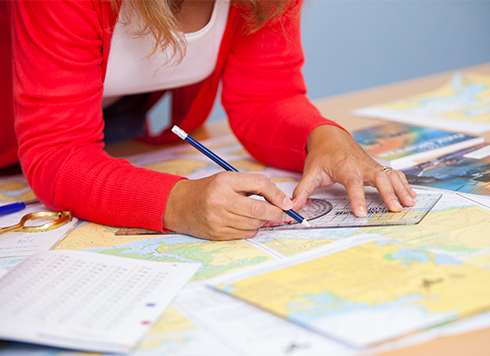
RYA Navigation Handbook 2nd Edition
£19.99
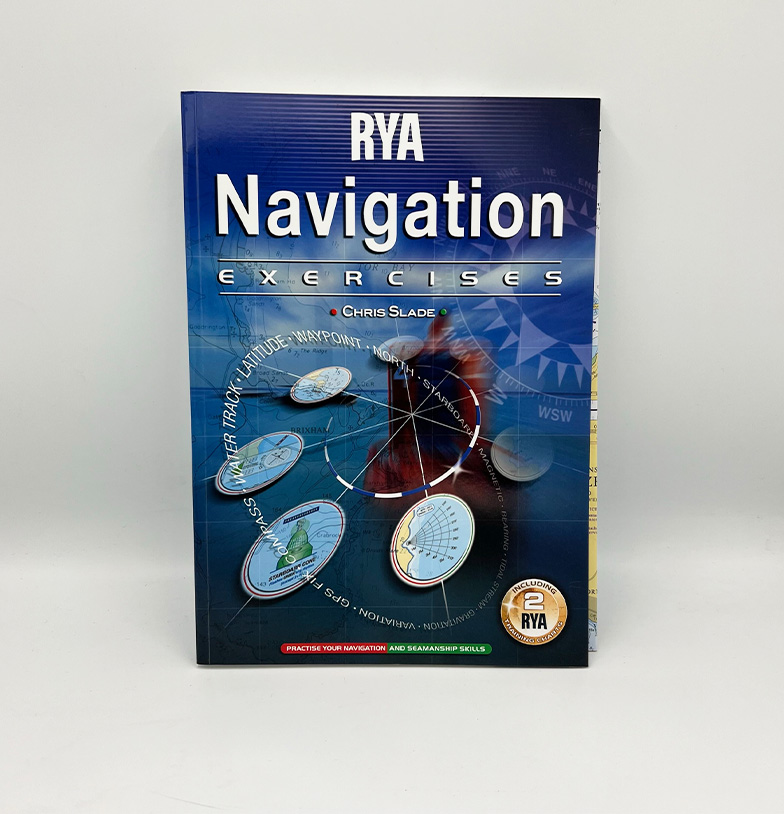
RYA Navigation Exercises
£22.99

RYA Yachtmaster Offshore shorebased
Who is it for.
The RYA Yachtmaster Offshore Shorebased course is an intensive 6 days theory course (plus approx 1 day for the exams) to prepare you for the Coastal Skipper practical and a recommended learning to access the Yachtmaster Coastal/Offshore practical preparation and exam.
Pre-requirements
Theory knowledge at Day Skipper level at the minimum
RYA Yachtmaster Offhore Shorebased – What do you get?
This course will guide you to thoroughly master the process of calculating tidal heights and tidal streams. This will help you calculate your estimated position (EP) and Course To Steer (CTS) in tidal waters. We will also refresh your knowledge about the ‘rules of the road’ (Colregs), signs and signals, and weather. Extensive time will be spent dealing with passage planning, taking into account all of the elements above, tidal streams, and more.
The course is administered over 40+ hours of tuition, split over three weekends, also including some interactive online webinars. After taking this course you will:
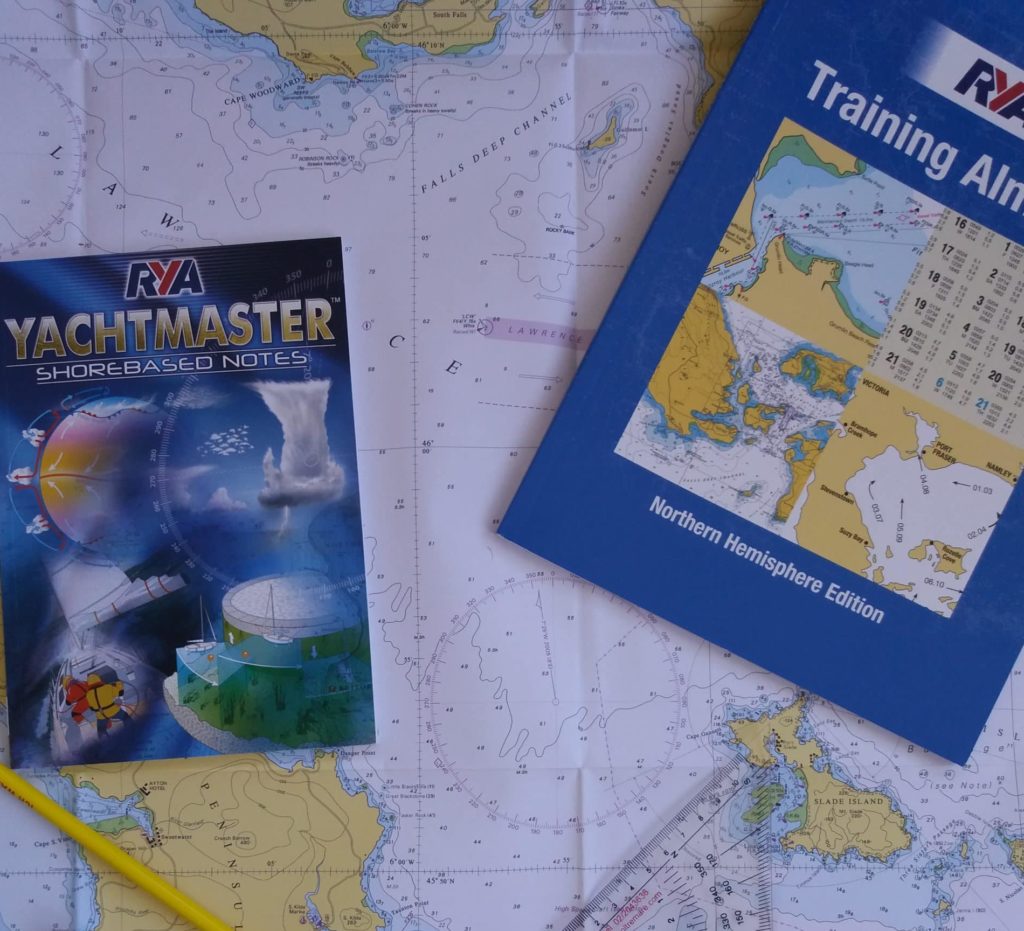
– Be able to properly work out tidal heights in both primary and secondary ports
– Be capable of calculating tidal streams
– Master the calculation of Course To Steer and be able to safely plan your passage
– Go through the 4 essential steps of a passage planning
– Obtain the RYA Yachtmaster Offshore Shorebased Certificate
There are three exam papers to go through to obtain your certificate, focussed on chartwork, IRPCS and passage planning. If successful, you will obtain the Yachtmaster Offshore Shorebased certificate.
What’s included:
- 40+ hours of actual tuition (mix of class and webinar) from an RYA qualified instructor
- RYA Yachtmaster Offshore Shorebased handbook
- 2 RYA training charts for the exercises
- Exercise booklet
- Weather booklet
- Training Almanac
- Telephone or online support
How to book:
Scroll the list of the courses in the box to the right (desktop) or at the bottom (mobile) of the page, choose the date that suits you, and click on it to start the booking process. If no courses are shown, please give us a call at +43 664 88360842 or send us an email at [email protected] , so we can discuss how we can help
Privacy Policy Designed using Hoot Business Premium . Powered by WordPress .

RYA Yachtmaster Offshore
Find out About the Yachtmaster Offshore Theory & Practical Training, (both Online & Shorebased)
Use the global Yachtmaster Offshore Directory to Find a Course Near me (Select any Location)
Page Navigation
- RYA Yachtmaster Offshore 200GT
- RYA Yachtmaster Offshore Requirements
- Course Breakdown
- RYA Yachtmaster Offshore Limited Theory
- RYA Yachtmaster of Yachts Practical Course
- RYA Yachtmaster Offshore Practical Examination
- RYA Yachmaster Offshore Certificate
- RYA Yachtmaster Offshore Commercial Endorsement
RYA Yachtmaster Offshore (Yachtmaster 200GT & 150NM Limited)
An RYA Offshore certifies an individual as competent to captain a vessel up to 24m in length and no more than 200 Gross Tonnes. The offshore certification is applicable passages during which the yacht is no more than 150 miles from harbour.
The Yacht master offshore consists of two components:
- Yachtmaster Offshore Theory
- Yachtmaster Offshore Practical
Both components can be done on an individual basis but in order to achieve a commercial endorsement for the yachtmaster offshore certificate of competency, both the theory and practical examinations must be passed.
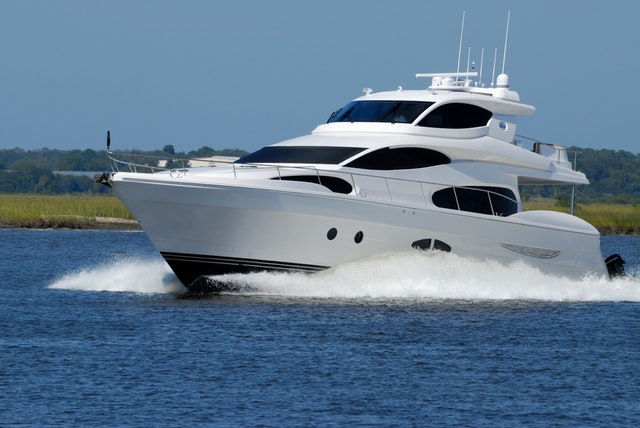
Yachtmaster Offshore Requirements:
In order to be eligible to take the Yachtmaster Offshore practical exam, candidates must meet the minimum sea time requirements.
The RYA Yachtmaster Offshore minimum sea time prerequisites are as follows:
- 50 days at sea on yachts up to 500GT
- 5 days as skipper on vessels less than 24m LOA
- 2500 miles on yachts up to 500GT
- 5 passages over 60 miles long, which must include 2 overnight passages and 2 as skipper
If a candidate already holds an RYA Yachtmaster Offshore Certificate of Competence for a different vessel type (Ie. power or sail) then the above prerequisites are adjusted as indicated on the RYA's Yacht Master Offshore Exam page.
Yachtmaster Offshore Course Breakdown
The Yachtmaster Offshore course consists of a 40-hour (minimum) theory course (excluding exam time), 5 days of practical training and preparation followed by a 2-day practical examination.
Yachtmaster Offshore Theory:
The following topics are covered during the Yachtmaster Offshore theory course:
- Position fixing,
- Course shaping and plotting,
- Tidal knowledge,
- Use of almanacs and admiralty publications,
- Electronic position finding equipment,
- Taking and interpreting forecasts,
- Plotting weather systems,
- Weather predictions using a barometer.
- Certificate issuing criteria
Yachtmaster Offshore Theory Online
The RYA Yachtmaster Offshore Theory can be studied in an online or virtual distance learning format. The online version of the course allows students to work through the training content at their own pace, which may benefit those who are working with little time off.
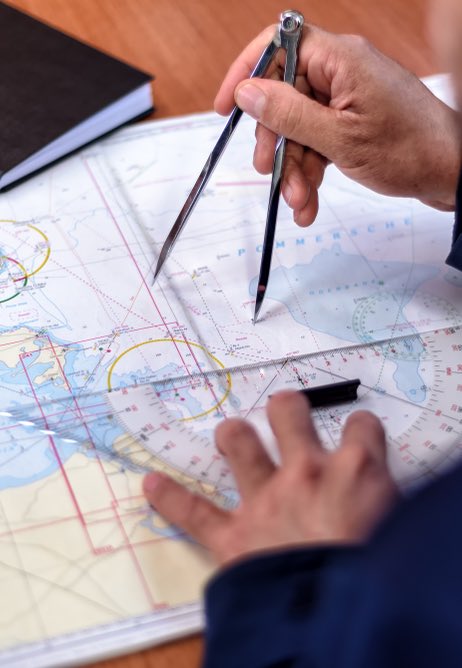
Yachtmaster Offshore Practical
Although there is no formal training course leading up to the RYA Yachtmaster Offshore Practical exam, it is common for yacht crew to complete a practical training course, leading up to the exam. This may vary slightly between schools but should be done at an RYA accredited center.
The exam will include an assessment of your skippering skills, boat handling, general seamanship, navigation, safety awareness and knowledge of the IRPCS, meteorology and signals.
RYA Yachtmaster Offshore Practical Exam:
A valid GMDSS-approved SRC Radio Operators Certificate and a First Aid Certificate are requirements for the RYA Yachtmaster Practical examination. The Elementary First Aid Certificate as acquired during STCW Basic Training is an accepted version. For recreational sailors, an RYA First Aid certificate is sufficient.
In addition to this, candidates need to ensure that they have met the minimum sea time prerequisites as highlighted above.
Practical Exam Assessment:
The exam will include an assessment of:
- The candidate's skills as a captain,
- Boat handling ability
- General seamanship,
- Navigation planning and execution
- Safety awareness and procedures
- Knowledge of the IRPCS,
- Meteorology,
- Lights, shapes, sounds, and other signals.
Practical Exam Duration:
- 8-12 hours for 1 candidate,
- 10-18 hours for 2 candidates.
- No more than two candidates can be examined in 24 hours and no more than four candidates can be examined in one 2-day session.
RYA Yachtmaster Offshore Certificate
Students who pass their Yachtmaster Offshore practical and theory examinations will be awarded an RYA Yachtmaster offshore certificate of competency. It is important to understand that CoC is a recreational license until it is commercially endorsed by the MCA.
RYA Yachtmaster Offshore Commerical Endorsement
In order to commercially endorse your Yachtmaster offshore certificate, you will need to submit the following:
- Original Yachtmaster Offshore certificate
- RYA Professional Practices and Responsibilities certificate
- an RYA commercial endorsement application form
- Your original, completed ML5, ENG1 , or an ENG1 equivalent medical form.
- A copy of your RYA Basic Sea Survival certificate or STCW Personal Survival Techniques
- A copy of your RYA Marine Radio SRC Certificate or other acceptable GMDSS Marine Radio Operator's Certificate .
- A passport-sized photo with your name on the back
- The application fee
RYA Yachtmaster Offshore License
A license card/ book will be provided to those who pass the relevant Yachtmaster offshore examinations. The license will include a photo, and details about the license holder, and will also include information about the endorsements associated with the license.
RYA Yachtmaster Offshore Training School Locations
Brazil Sao Paulo
Croatia Split
Greece Corfu
South Africa Cape Town Langebaan

Spain Barcelona
Turkey Marmaris
United Kingdom England Ireland Scotland
West Indies Antigua
Username or Email Address *
Remember me Lost your password?
Username or Email
Get New Password
Register today and get £50 off
Enter voucher code HOME STUDY in the booking form
Coastal / Offshore
RYA Yachtmaster
Online Theory Course
A challenging course which stretches you but backed up with excellent coaching and instructor support.

Advanced training for more experienced skippers to navigate safely on coastal and offshore passages
The RYA Yachtmaster online theory course takes your theory knowledge to the standard required for the Yachtmaster Coastal and Yachtmaster Offshore practical exams.
This course advances your skills as a skipper of a yacht or motor boat, with an emphasis on navigation and passage planning for more complex coastal or offshore passages by day and night
Includes some time for the revision of Day Skipper subjects then moves on to cover a greater depth of knowledge and more advanced skills in navigation, pilotage & meteorology.
Successfully gaining your RYA Yachtmaster theory certificate will enable you to confidently work towards your Yachtmaster Coastal or Yachtmaster Offshore practical qualification.
- Assumed knowledge To Day Skipper theory level.
- Minimum duration A minimum of 40 hours of course study time is specified by the RYA, plus time for exercises and exams.
- Ability after course Theory knowledge to skipper a vessel on coastal and offshore passages by day and night.
Simply click below to try a free lesson.
Pilotage for RYA Yachtmaster Offshore
- Charts & Other Publications
- Definition of Position, Time, Speed & Distance
- The Compass (including allowance for deviation and swinging the compass)
- Tidal Theory
- Tidal Heights (including secondary ports)
- Tidal Streams (including interpolation of drift)
- Estimated Position
- Course to Steer
- Visual Aids to Navigation
- Electronic Aids to Navigation
- Passage Planning
- Meteorology (including interpreting surface pressure charts)
- The Collision Regulations
- Safety & Protection of The Environment
Unlimited support from our dedicated RYA Instructors - 365 days a year via email, phone or Skype/Zoom.
14-day unconditional money-back guarantee.
17 fully-narrated online lessons including animations, videos and realistic 3D graphics.
Embedded quizzes with instant feedback in each lesson.
14 self-assessment exercises with fully worked answers.
Over 50 downloadable or linked resources.
Videos covering: updating paper charts, engine checks, dismasting, jury rig, flood control, firefighting, gas explosions, capsize, lifejacket checks, how to put on a lifejacket and what happens when it inflates, man-overboard recovery, launching and boarding a liferaft.
Free Radar course.
RYA Student Pack (including 2 training charts, training almanac & course handbook).
Mock exams to prepare you for the real thing and give you the confidence to pass.
3 final online exams with detailed instructor feedback and free repeat attempts if requried.
RYA Yachtmaster Shorebased Theory Course Completion Certificate.
12 months access to study with instructor support and exams - you can extend this if you want.
Lifetime access to training materials once you’ve completed the course.
Optional Extras
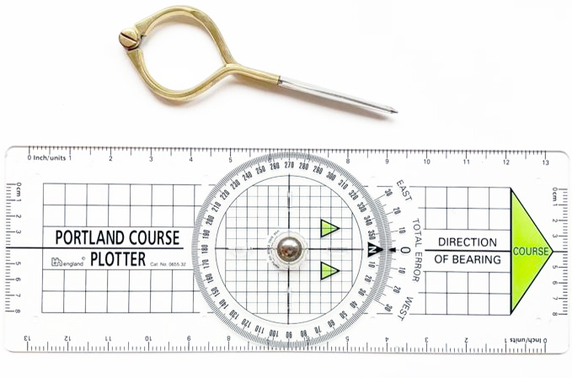
Plotter and divider You’ll need a course plotter and chart-dividers to complete the chartwork exercises - if you don’t already have these you can purchase a top quality set from us for £28 when you place your order.

Delivery UK delivery is free. European delivery is £20, outside Europe delivery is £40.
You can start studying immediately as many of the lessons don’t rely on the printed support materials.
This course is accessed online with no additional software required.
Lessons are accompanied by optional professional narration, and notes.
They are intuitive and easy to follow, whilst more complex subjects are accompanied by interactive animations and graphics to help you gain a full knowledge of each subject in the course syllabus.
Detailed step-by-step workings for navigational or tidal calculations make it easy for you to follow along as we show you how to plot positions, make tidal height and stream calculations, etc
You can go over these again and again, and test your knowledge with regular quizzes throughout each lesson.
At the end of each lesson there is an excercise containg similar questions to the exam, with detailed and illustrated answers sent to you immediately to confirm your progress and fully prepare you for your mock and final exams.
You can repeat entire lessons and excercises as often as you wish until you are confident that you fully understand each subject.
When you have completed the course you can request mock and then final exams.
These are assessed by our RYA Instructors and detailed feedback is provided in any areas that may require further study within the course.
If you pass the final exams you will be awarded the RYA/MCA Coastal Skipper & Yachtmaster Offshore Shorebased Course Certificate , which will be posted to you.
Additional free resits, with suitable Instructor guidance, are available if required.
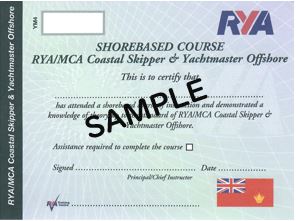
Call us for advice on 0238 218 2604
Course reviews.
Laura Anderson
Very enjoyable and informative
Impressively prompt and thorough feedback on all queries, tests, mock and real exams. Very high standards and you feel you have earned the Yachtmaster certificate.
Ciaran McIntyre
Comprehensive and well delivered
Excellent course materials and high quality delivery. Very responsive and excellent instructor feedback
Andrew Harvey
Excellent Yachtmaster theory course - I’d definitely recommend it.
Does what it says on the tin and more. I was impressed how well the course managed to tackle teaching relatively complex skills in a logical and easy to understand way.
Oliver Fleming
Well put together course.
I found the Yachtmaster theory course to be really well structured and covered all of the syllabus in great detail. I was impressed by how well the course managed to tackle teaching relatively complex skills in a logical and easy to understand way.

Combined - RYA Day Skipper & Yachtmaster to fast track your theory learning
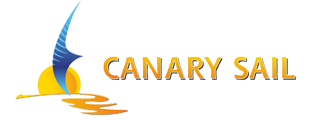
RYA Coastal Skipper/Yachtmaster Offshore Shorebased Course
Advanced training for more experienced skippers building on the Day Skipper course. This course equips you to navigate safely on coastal and offshore passages.

6 day classroom course, including exam time
Assumed knowledge

RYA Tidal Day Skipper Theory knowledge is recommended
Course content

Knowledge of safety on board, parts of a boat, rigging and sails, anchoring, emergency procedures, meteorology, navigation including position fixing, plotting, tidal height and drift, secondary port calculations, Computation of rates, pilotage, passage planning, course to steer, estimated position, navigation tactics in restricted visibility and collision regs. The course includes three test papers covering Prevention of Collision at Sea Regulations, Meteorology and Chart Work
Expected learning outcome

This course is the ideal method to advance to your next level – RYA Tidal Coastal Skipper Practical Completion certificate and/or your MCA/RYA exam. On successful completion you will receive an official RYA certificate signed by your Instructor

€830 (Minimum 2 candidates)
Availability

Contact us for availability

Typical Itinerary
This course will take your theory knowledge to the standard required for the Yachtmaster™ Coastal and Yachtmaster™ Offshore practical exams, concentrating on advanced navigation and meteorology skills.
As with the Day Skipper shorebased course, the RYA’s specially designed chart plotter software will be used during the course to give you a realistic taste of modern electronic navigation.
Students in the southern hemisphere can take advantage of the southern hemisphere version of our training materials, ensuring that your course is relevant to you.
The course is taught over 40 hours with three exam papers. It can be covered as a series of short sessions, as an intensive week-long course, or by distance learning.
Course topics include
- position fixing
- course shaping and plotting
- tidal knowledge
- use of almanacs and admiralty publications
- electronic position finding equipment
- taking and interpreting forecasts
- plotting weather systems
- weather predictions using a barometer and by observation
- collision regulations
- customs and excise regulations for cruising abroad
It allows some time for revision of the basics and then moves on to advanced navigation techniques.
Contact us for further details

A wide range of practical and theory courses offered all year round
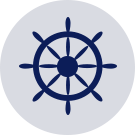
Choose from a variety of sail cruises around the Canary Islands and beyond
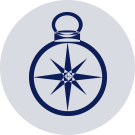
From Bareboat to skippered charter, we have an option to suit your needs
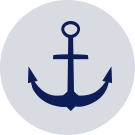
ACCOMMODATION
Recommended accommodation options in La Gomera and Tenerife
Phone any time on our UK Divert No. (UK call cost): 0044 1252 837648 Phone (USA): 001 855 866-5566 Phone (Spain): 0034 922 141 967
Company Address: Marina San Miguel Urbanizacion Amarilla Golf 38639 San Miguel de Abona Santa Cruz de Tenerife Islas Canarias Espana
Postal Address : Apartado de Correos 211 38800 San Sebastián de la Gomera Islas Canarias Espana
Office opening hours: Monday-Closed Tuesday-Friday 08.30-15.30
Calls diverted outside of office hours, excluding Mondays. Please send us an email and your enquiry will be dealt with promptly.
Please use the form below to email us with your enquiry
- Why Choose Canary Sail?
- Accommodation
- Flight Advice
- Terms & Conditions
- RYA Practical Sailing Courses
- RYA Theory Courses
- Yachtmaster Fastrack
- RYA Competent Crew Practical
- RYA Tidal Coastal Skipper
- Dedicated Boat Handling
- Just Sailing
- Four Seasons
- Lava Charter
Canary Sail offers year-round sailing courses, cruising, and yacht charters from their base in South Tenerife, just 15 minutes from TFS Airport. They provide comprehensive RYA training, covering over 100 nautical miles and visiting multiple ports. With experienced instructors and a focus on quality, they attract many returning clients and referrals.
Take a look at our feed
Take a look at our feed across the canary sail world, our most recent social media posts, canary sail s.l, recent posts.
- Catamaran Cruising and Sailing Training in the Canary Islands 5th August 2024
- Top Weather Apps for Sailors 17th June 2024
- Exploring the Expertise Behind Canary Sail’s Team 2nd May 2024
- Flotilla Sailing Holidays in the Canary Islands with Canary Sail 3rd April 2024
- Wildlife Watching Guide for Sailors in the Canary Islands 12th March 2024
- What to Expect from Your RYA Practical Course 16th February 2024
- Sailing Courses: Cost Comparison Between the Mediterranean and the Canary Islands 8th February 2024
- Weather Insights for Sailing for the Canary Islands 3rd January 2024
- Meet the Canary Sail Team 17th November 2023
- Hidden Gems of Tenerife and Lanzarote 1st November 2023

Looking to hire a yacht, take a sailing course or maybe just relax on a boat in the Canaries? With over 20 years experience we offer an unrivalled range of RYA Courses.
Web Design by Green Tornado
RYA Yachtmaster Coastal/Offshore Theory
An advanced six-day navigation course, this is aimed at those who have already completed the Day Skipper theory course or are of equivalent standard. The course will give students the skills required to successfully navigate a vessel on coastal or offshore passages by day and night.
The syllabus is designed to take your theory knowledge to the standard required for sitting the Advanced CoC, Yachtmaster Coastal and Yachtmaster Offshore practical exams, concentrating on advanced navigation and meteorology skills.
Assessment includes: c hartwork a ssessment; c ollision r egulations; p assage m aking
6 day course £495pp
Given our commitment to keep prices as low as possible, in the current economic climate we reserve the right to cancel & reschedule any course which is not fully booked
Course Syllabus
Understand dead reckoning and estimated position
Understand satellite-derived position
Use of waypoints
Radar fixes
Techniques of visual fixing
Understand fixes using a mixture of position lines
Relative accuracy of different methods of position lines
Understand areas of uncertainty
The magnetic compass
Allowance for variation
Understand change of variation with time and variation
Understand causes of deviation
Swing for deviation (but not correction)
Allowance for deviation
Different types of compass
Causes of tides -spring and neaps
Tide tables - sources
Tidal levels and datum
Standard and secondary ports
Tidal anomalies
Tidal Streams
Sources of tidal information
Tidal stream information in sailing directions and yachtmen's alamanacs
Allowance for tidal stream in computing a course to steer
Tide rips, overfalls and races etc
IALA system buoyage in Region A
Limitations of buoys in navigation aids
Understand characteristics
Ranges - visual, luminous and nominal
Rising and dipping distances
Light lists
Harbour regulations and control signals
Methods of pre-planning
Clearing lines
Use of soundings
Transits and leading lines
GPS and Chart Plotters
Priniples of operation and limitations of use
Raster and vector charts
Understand datum
Importance of confirmation of position by an independent source and keeping a sperate record of position
Importance of paper charts
Echo sounders
Principles of operation and limitations of use
Logs (speed and distance measuring)
Principles of operation and limitation of use
Importance of log as yachts official document
Layout of log, hourly and occasional entries
Pre Requisites
Knowledge to the level of Day Skipper Theory
Whats Included
6 Days of Training in our Classroom
Access to our student resource website
Note Pad & Pen
Tea, Coffee & Refreshments
Yachtmaster Theory Course Pack
Training Almanac
Use of Dividers & Plotters for the course.
Course Dates
Contact us if dates are unsuitable, or no dates are showing
- Account icon Log in
- Basic Safety Training
- Refresher (Fire & PST)
- Elementary First Aid
- Fire Prevention & Fire-fighting
- Personal Survival Techniques
- Advanced Fire Fighting
- Advanced Fire Fighting Refresher
- Proficiency in Security Awareness
- Personal Safety & Social Responsibility
- Crowd Management / Crisis Management and Human Behaviour
- Powerboat Level 2
- PWC/Jet Ski License
- PWI/Jet Ski Instructor
- PWC + PWI Pack
- Pack PB2 & PWC
- Day Skipper
- Shorebased Yachtmaster Theory
- Yachtmaster Practical Preparation & Offshore Exam
- Yachtmaster Offshore Package
- Full Deckhand Pack
- Full Interior Pack
- Basic Deckhand Pack
- Basic Interior Pack
- Full Tender and Jet Ski Pack
- Tender Pack
- Jetski Pack
- Yacht Deckhand Training
- Yacht Steward/ess Training
- Basic Food & Beverage Services
- Basic Housekeeping & Laundry Services
- Basic Wine, Bartending & Mixology
- Food Safety Level 2
- ⚡Lithium-ion Battery Safety Awareness on Superyachts
- VHF Short Range Certificate
- RYA Professional Practice & Responsibilities
- RYA Essential Navigation and Seamanship
- RYA Online Coastal Skipper/Yachtmaster Theory
- RYA Online Day Skipper Theory
- STCW PDSD for Superyachts
- STCW PDSD for Cruise Ships
- STCW Proficiency as Ship Security Officer on Superyachts
- Useful Information
- Steward/ess
Yachtmaster Offshore: When, Why, and How
In a seafarer’s career, there comes the time when Yachtmaster ticket becomes either a necessity, or the next logical step in professional development. No matter what the reason for the course is, Yachtmaster Offshore requires a thorough preparation and planning as well as some prior knowledge and experience.
- When am I ready to take the course?
The candidate’s eligibility for Yachtmaster Offshore program is defined by a number of requirements. First and foremost, the logged sea time must show a minimum of 2500 nautical miles, about half of which should be in tidal waters. There is a huge debate as to what tidal waters are, and the RYA leaves it to the Yachtmaster candidate to decide whether the passage they undertook happened in a tidal area. The definition offered by the RYA is as follows:
An area is deemed tidal if published stream, current or tidal range data is available, the influence of which is significant enough to require the effects to be taken into account to plan and execute a safe and efficient passage .
But even if the decision to call experience tidal is the candidate’s, the RYA wisely warns that the final judgement will be made by the examiner and recommends to list only those miles that can be backed up with evidence. The qualifying sea time should be gained on motor vessels if the candidate applies for Yachtmaster Offshore Motor license. Sail miles do not count.
The RYA also sets a requirement as to the number of qualifying passages. As defined by the Association, ‘a passage is a non-stop voyage from a departure port / safe haven to a destination port / safe haven ’. For the Yachtmaster Offshore , there must be a minimum of 5 passages over 60 nm each; 2 of those passages should be overnight and 2 when the candidate acted as a skipper. The skipper, as understood by the RYA , is a person nominated and responsible for the planning and execution of a passage including vessel and watch management . It’s important that throughout the 60-mile passage there occurs no change of skippers; otherwise, the passage cannot be deemed as qualifying.
Proper understanding of the skipper’s role is vital for ticking the box of another requirement – 5 days on board acting as a skipper. A day in this case is a period of 8 consecutive hours, and the majority of them should be at sea . In every 24 hours, Yachtmaster candidate can have only one qualifying day onboard.
Last but not least, the RYA’s Yachtmaster Offshore exam pre-requisites put some restrictions as to the tonnage and length: days on board and miles should be gained on vessels up to 500 gt and less than 24 meters LOA.
- When is the best time to take the RYA Yachtmaster Offshore course?
The full program – RYA Yachtmaster Offshore theory and RYA Yachtmaster Practical – takes 10 days to complete; the exam is usually scheduled right after, and candidates need to allow 2 days for it. With the sea, winds, and weather being unpredictable, to the candidates coming from abroad we advise to add an extra day before taking flights back home. Thus, the course is quite a commitment, and most seafarers take it during low Med season. Our Yachtmaster Offshore course is scheduled every month from December throughout April to give options to potential candidates.
- Why take the RYA Yachtmaster Offshore?
Yachtmaster is not for beginners. Commercially endorsed Yachtmaster Offshore Certificate of Competence entitles its holder to master a yacht of up to 200 gt, and that is a big responsibility. That said, one of the reasons to get Yachtmaster is to advance the qualifications from entry to higher level including MCA Officer of the Watch (OOW) or Chief Mate, for which Yachtmaster Offshore CoC is among the required documents. Yachtmaster Offshore Shore-based (theory) certificate is another pre-requisite to apply for the OOW, and it has to be sent along with STCW and other records as a part of the Notice of Eligibility.
In a scheme of RYA training , Yachtmaster Offshore is preceded by RYA Day Skipper and Coastal Skipper, which allow to navigate 20 and 60 nautical miles offshore accordingly. With Yachtmaster Offshore qualifications, it is possible to skipper a cruising yacht up to 150 miles from harbour, so recreational boaters can have larger areas to explore and longer distances to cover.
- How to apply for Yachtmaster Offshore Program?
If you believe you are ready and meet the pre-requisites mentioned above and outlined on our website , your first step is to get in touch with us by email, phone, or through contact form . Once we receive your enquiry, we will email to you Sea Time Summary and Self-Evaluation forms to fill out, which we will then forward to our instructor to confirm your eligibility. If you are eligible for the course, we will proceed with course booking and securing your place on the training.
Some important things to remember: the candidates for the training should hold a valid Elementary First Aid certificate . For the STCW EFA , it should be issued within the last 5 years, for the RYA First Aid - within the last 3 years. VHF Marine Radio certificate can be offered as a part of Yachtmaster Offshore package , but if you already hold the certificate, we can offer a 100 euros reduction.
Our next Yachtmaster Offshore session starts on the 6 th of December. Click here for more dates.
More questions about Yachtmaster? Let us know!

Leave a comment
Comments must be approved before appearing
* Required fields
Subscribe to our newsletter & be the first to know of training dates & offers
Checkmark icon Added to your cart:

RYA Coastal Skipper/Yachtmaster Offshore Shorebased
The RYA Coastal Skipper and Yachtmaster Offshore Shorebased course is for experienced sailors. The course builds on the theory learnt on the Day Skipper course, which is the knowledge level required at the outset of this course. It will give you the experience and confidence to plan and achieve your passage in offshore and coastal routes. Unlike the Day Skipper course, it includes precision tidal calculations.
The course will increase your theory knowledge to the required standard for the Yachtmaster Coastal and Yachtmaster Offshore exams, concentrating on advanced navigation, IRPCS and meteorology subjects.
This is an intense six day course, from 0900 hrs to 1700 hrs every day (1 hr for lunch plus 2 x 15 min breaks), that will teach you advanced navigation techniques. The syllabus contains:
- position fixing
- course shaping and plotting
- tidal knowledge
- use of almanacs and admiralty publications
- electronic position finding equipment
- taking and interpreting forecasts
- plotting weather systems
- weather predictions using a barometer and by observation
- collision regulations
- customs and excise regulations for cruising abroad
Please note that the places available on the dates in the tables below are for classroom places only. There are places continuously available online at Navathome - see Online Courses
| Form | Location | Price | |
|---|---|---|---|
| 6 Consecutive Days | Largs Classroom | £349 | VIEW DATES |
| 3 Consecutive Weekends | Largs Classroom | £349 | VIEW DATES |
| Private Tuition or Flexi Choice | Largs Classroom | Upon Request [Typically £300/Day] | ENQUIRE |
You will sit three exams during the course and at the end will achieve the RYA Coastal Skipper/Yachtmaster Theory certificate.
Our instructors are all trained to RYA Yachtmaster Instructor standard and have many years of teaching experience, lots of patience and an ability to adapt their teaching style.
| Date | Places | Price |
|---|---|---|
| Saturday, 12th October 2024 at 09:00 (12th/13th+19th/20th+26th/27th) | 6 | £ 349.00 |
Number of participants
We will start our cruise in the beautiful tourist port town of Cascais on the outskirts of Lisbon. We will visit Porto, we will stop at the marina right at the mouth of the Douro River, not far from the famous Port wine cellars, which we will visit. We end up in the Spanish port city of La Coruña, home to the world’s oldest lighthouse still in operation. Port & Paella, sun and sailing – a winning combination!
Discovery adventure sail full of interesting, exotic places. It’s not often that you visit four countries on two continents on one holiday! The sailing adventure is planned in such a way that there is time to wander the streets of the towns and cities visited. Each place is completely different, with a different atmosphere and a different culture. Sailing in the Gibraltar area is a powerful experience in itself due to the current, weather and heavy boat traffic – great for revising your col regs! Malaga is easily accessible by plane, as is Lisbon for all major airports.
Three days of ocean crossing to the island of eternal spring. We will sail from Arrecife, stopping at the beautiful and rustic Isla Graciosa, north of Lanzarote followed by Islas Selvagenas which is a Portuguese nature reserve comprising of several small islands about 130 miles northwest of Lanzarote. The next stop will be Porto Santo, a small neighbour of Madeira with a beautiful, almost empty golden beach of several miles. Once on Madeira we will visit some of the marinas in the south of the island and end up in Funchal, the capital of Madeira. The entire trip should be less than 400 miles. Informal coaching on the way, keeping your skills fresh in the winter months.
Jersey – Dublin – Largs
A brisk, action-packed cruise across the English Channel and the Irish Sea.
The area of Brittany and the Channel Islands has one of the largest tidal ranges in Europe, with very strong tidal currents. Yachting paradise and hell at the same time. Amazing sailing experience and good experience.
Who hasn’t sailed the Biscay, it’s as if he wasn’t even a yachtsman. The Bay of Biscay is called the weather kitchen for Europe. The weather here changes quite quickly and with stronger winds, bigger waves can form. That’s why we count on a 10-day cruise so that we can wait for the optimal moment to set sail. The cruise itself should take about 3 days. If there is time left, we will take some cruises along the coast of Brittany around Brest. Both La Coruña and Brest are harbor pearls of the Atlantic Ocean.

Provide your contact details below
Welcome on board.
We will get back to you on the next working day.


.fusion-body .fusion-builder-column-0{width:33.333333333333% !important;margin-top : 0px;margin-bottom : 20px;}.fusion-builder-column-0 > .fusion-column-wrapper {padding-top : 0px !important;padding-right : 0px !important;margin-right : 5.76%;padding-bottom : 0px !important;padding-left : 0px !important;margin-left : 5.76%;}@media only screen and (max-width:1024px) {.fusion-body .fusion-builder-column-0{width:100% !important;order : 0;}.fusion-builder-column-0 > .fusion-column-wrapper {margin-right : 1.92%;margin-left : 1.92%;}}@media only screen and (max-width:640px) {.fusion-body .fusion-builder-column-0{width:100% !important;order : 0;}.fusion-builder-column-0 > .fusion-column-wrapper {margin-right : 1.92%;margin-left : 1.92%;}} .fusion-button.button-1 .fusion-button-text, .fusion-button.button-1 i {color:#ffffff;}.fusion-button.button-1 .fusion-button-icon-divider{border-color:#ffffff;}.fusion-button.button-1:hover .fusion-button-text, .fusion-button.button-1:hover i,.fusion-button.button-1:focus .fusion-button-text, .fusion-button.button-1:focus i,.fusion-button.button-1:active .fusion-button-text, .fusion-button.button-1:active{color:#ffffff;}.fusion-button.button-1:hover .fusion-button-icon-divider, .fusion-button.button-1:hover .fusion-button-icon-divider, .fusion-button.button-1:active .fusion-button-icon-divider{border-color:#ffffff;}.fusion-button.button-1:hover, .fusion-button.button-1:focus, .fusion-button.button-1:active{border-color:#ffffff;}.fusion-button.button-1 {border-color:#ffffff;border-radius:50px;}.fusion-button.button-1{background: #e91e63;}.fusion-button.button-1:hover,.button-1:focus,.fusion-button.button-1:active{background: #3d66ae;} Sign up to Newsletter .modal-1 .modal-header, .modal-1 .modal-footer{border-color:#e2e2e2;} × Sign up to Newsletter
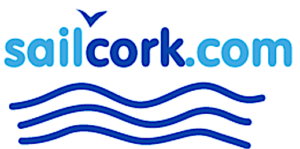
Email (required) *
I am interested in:
Example: Yes, I would like to receive emails from Sail Cork. (You can unsubscribe anytime)
RYA YachtMaster
At SailCork we have been shorebased navigation courses successfully for over 30 years with over 2000 graduates to prove it! Every opportunity is used to refer to practical day to day real life situations. If your area of interest is motor boating, RIB driving, sea angling, sea kayaking, dayboat sailing, cruiser sailing or commercial boat driving – we have the background and experience to give you the course you want.
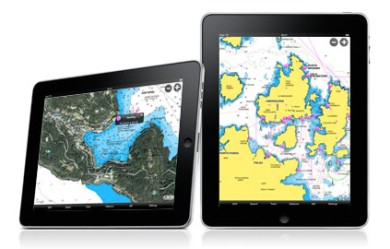
SailCork is the longest established navigation school in Ireland and has been delivering Yachtmaster Shorebased Theory, Day Skipper Shorebased Theory and Basic Navigation Course for over 30 years. SailCork has been at the leading edge in providing Electronic Navigation Courses and was the first in Ireland and the UK to develop a special navigation course for the iPad . Learn from us and also from your colleagues on the course. Enjoy relaxed surroundings, modern teaching methods, experienced tutors and enjoy a chat before or after class as well as at the coffee break. Come aboard and have top class tuition, enjoy friendly camaraderie and relish the progressive learning experience.
For complete beginners we run our Basic Navigation Course , for beginners and improvers we run our Day Skipper Shorebased Navigation Course and for experienced navigators we run the Yachtmaster Offshore Shorebased Course. We place huge emphasis on linking the theory with live situations afloat and our instructors use their experience and yours to link to the course material.
All our Navigation Courses include Electronic Navigation and we provide a tutorial disk for every participant. (Please note that not all navigation courses in Ireland include E-Nav)
Yachtmaster Shorebased Navigation Course
Advanced training for more experienced skippers building on the day skipper course. this course equips you to navigate safely on coastal and offshore passages. it allows some time for revision of the basics and then moves on to advanced navigation techniques. this course will take your theory knowledge to the standard required for the coastal skipper and yachtmaster offshore practical exams, concentrating on advanced navigation and meteorology skills. as with the day skipper shorebased course, the rya’s specially designed chart plotter software will be used during the course to give you a realistic taste of modern electronic navigation.(a must in this day and age).
This course includes: Position fixing, Course shaping and plotting, Tidal knowledge, Use of almanacs and admiralty publications, Electronic position finding equipment, Taking and interpreting forecasts, Plotting weather systems, Weather predictions using a barometer and by observation, Collision regulations, Customs and excise regulations for cruising abroad – for a full detailed syllabus click here .
The Yachtmaster Shorebased is an advanced Navigation Course . Participants should preferably have attended a Day Skipper Course and should have experience in practical navigation. This is the top end navigation course.
Evening courses are run over 15 evenings (42 hours) and begin Thur October 24th. Each evening begins at 19.30 and we finish off at 2215 . The pre Christmas part of the course (11 classes) will finish in mid December. We resume 3 weeks later in early January for 6 classes until we finish in early February.
Venue: Royal Cork Yacht Club Crosshaven Co. Cork. Enjoy warm, comfortable surroundings with up to the minute teaching equipment. NB: We will be providing a free tutorial a few weeks into the course to help you if you feel you are falling behind.
Run over six days (45 hrs) in Cobh. Hours: Sat 0930- 1830 Fee €499.
2014: Late March
NB If you have a group of 4 or more we can run a special course for you over 6 days or 3 weekends. We will also travel to venues outside Cork.
Your Yachtmaster Navigation Course:
What to Bring : A4 Notepad, pen, 2b pencils, sharpener & eraser.
You will also need a Plotter or Parallel Rulers, Nautical Dividers and a Training Almanac. You are advised to have some extra books on navigation, meteorology etc – these all available from SailCork who have a very comprehensive stock or nautical publications and charts.
Yachtmaster Revision:
For those who have completed their Yachtmaster - this course is to keep you on your toes and in touch! If you wish to revise and progress and make practical plans for the season afloat this is the course for you. The full Yachtmaster Course at HALF PRICE! Join the Yachtmaster Course at RCYC for only €259
Contact Jo English at SailCork now on 021 4811237
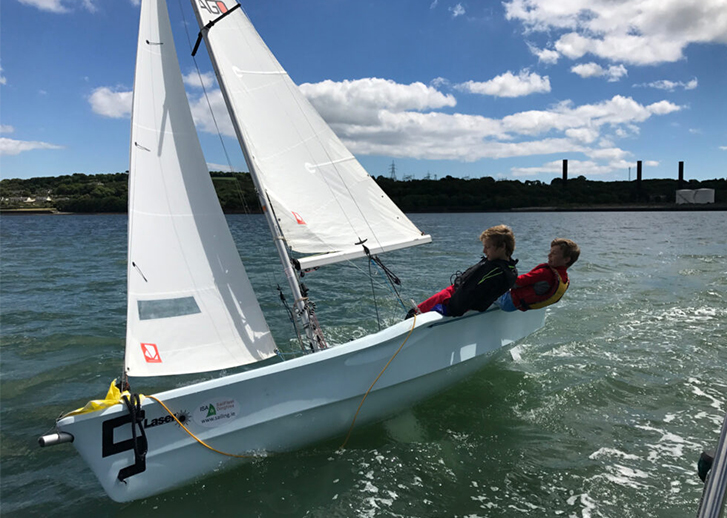
Our Gallery
More courses you may find interesting.
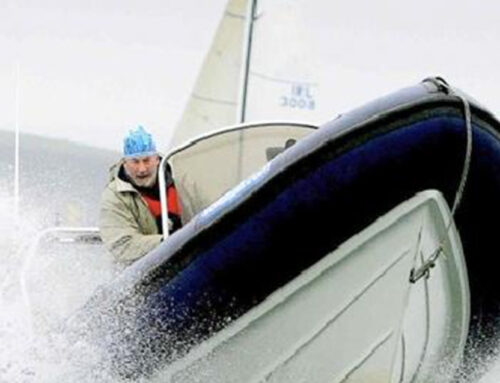
Powerboat Instructor Course
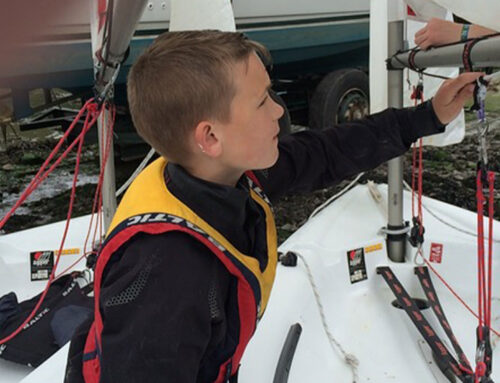
Time On The Water – Junior
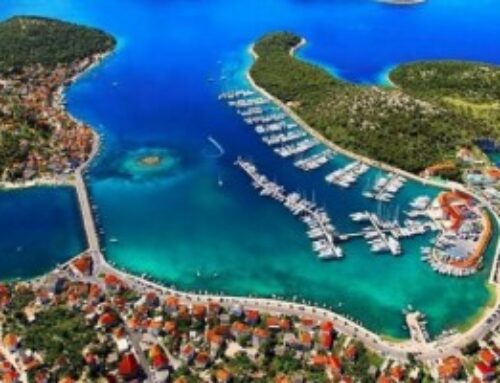
5 reasons why you should join us in Croatia!
Yachting – youth, call us today, we are here for all of your needs & questions.
East Hill, Cobh, Co. Cork, Ireland

© Copyright 2024 | All Rights Reserved | by Web Design Cork
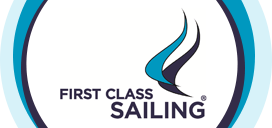
- Information
- Call Us: 0203 006 3717 (9:30am-4:30pm)
What is the Difference Between Yachtmaster Ocean and Offshore?
First Class Sailing is one of the UK’s leading schools for those seeking to complete their RYA qualifications and certificates. We offer the full ranges of courses, including RYA Yachtmaster Ocean and Yachtmaster Offshore .
We are often asked what the differences are between the two courses, so this short blog posts will explain all you need to know.
The simple difference between the two qualifications, is astronavigation. You should take the Yachtmaster Ocean exam if you want to sail large distances over long periods of time. It will mean you can navigate by the sun and stars, fixing your position with a sextant if your electronic navigation fails.
The difference between Yachtmaster Offshore and Ocean once qualified
Once you hold a qualification, it will make a difference as to what you can do in addition to the astronavigation aspect we discussed. The RYA Yachtmaster Offshore qualification makes you a competent skipper of a yacht of up to 24 metres in length, in waters up to 150 miles from land.
If you are qualified with RYA Yachtmaster Ocean, the difference is you can skipper a vessel of 24 metres in length and up to 200 gross tonnages anywhere around the globe.
Differences between the practical courses
To take the Yachtmaster Offshore course, you must have at least 50 days’ sailing time, with two of those days as the skipper. You also need to have logged 2,500 nautical miles, 5 passages over 60nm including two overnight and two as skipper, all within the last ten years.
Half the qualifying sea time must have been conducted in tidal waters & on a sailing vessel 24 metres or under.
You will also need a VHF radio licence, a First aid certificate and sound knowledge of using a Radar.
To take the Yachtmaster Ocean course, you must first have the Yachtmaster Offshore certificate.
You also need to have completed a qualifying passage that meets the following criteria:
- The candidate was fully involved in the planning of the passage, including selection of the route, the navigational plan, checking the material condition of the yacht and her equipment, storing the spare gear, water and victual and organizing the watch-keeping routine.
- During the passage a minimum non-stop distance of 600 miles must have been run by the log, the yacht must have been at sea continuously for at least 96 hours and the yacht must have been more than 50 miles from land while sailing a distance of at least 200 miles.
- Qualifying passages for Yachtmaster Ocean and Offshore should be non stop by the shortest navigable route with no change of skipper. Passages such as recognised races which may not comply exactly with these requirements may be submitted to the RYA for approval before the voyage.
- Hold a First Aid qualification, as for Yachtmaster Offshore
- For Ocean Passages, the following definition will apply: Throughout the passage the candidate must have acted in a responsible capacity either in sole charge of a watch or as a skipper.
Posted by: Heighway
Post a Comment Cancel reply
Name (required):
Email (required):
Your comment (required):
- All Categories
- Antigua – Portsmouth
- Atlantic Adventures
- Boat Handling Master Classes
- Channel Crossing – Channel Islands
- Coastguard Closures
- Crowdfunding
- Experiences and Challenges
- Fastnet Race
- Global Ocean Race
- Golden Vanity
- Learn to Sail
- Night Sailing
- Norway Challenger
- OnLine Learning
- Passage Planning
- Portsmouth – Gran Canaria
- Round the Island Race
- RYA Competent Crew
- RYA Courses
- RYA Day Skipper
- RYA Diesel Engine Maintenance Course
- RYA VHF Radio Course
- RYA Yachtmaster
- Sail Round Britain
- Sailing Around Britain
- Sailing Events
- Sailing Holidays
- Sailing in media
- Sailing in the West Country
- Sailing Tales
- Sailing Trips
- Skippered Charter
- Southampton Sailing Week
- Traditional Sailing
- UK Sailing Holildays
- Whole Boat Charter
- Yacht Design
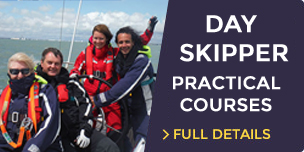
Sorry. No data so far.
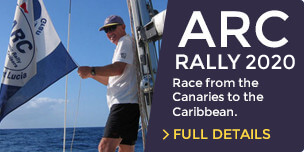
We love to hear from our customers and we are happy to call/email you to discuss your sailing needs.
- Certificates of Competence
- RYA Yachtmaster Offshore exam
RYA Yachtmaster Offshore Exam
Full details of the exam syllabus and requirements are shown in the RYA Yachtmaster Scheme Syllabus and Logbook (G158) available from the webshop (see right).
RYA Yachtmaster Offshore practical exams can be taken under sail or power and your certificate will be endorsed accordingly. The candidate or a training centre provides the boat and the RYA provides an examiner. Note: All qualifying sea time and passages must be gained on vessels appropriate to the type of exam i.e. gained in sailing vessels for a sail exam and power vessels for a power exam.
There is no formal training course leading up to the exam, but those who have not previously taken RYA courses often find it useful to book themselves in for some informal training at an RYA centre prior to their exam. This training can be tailor-made to your specific needs and helps to fill any gaps in your knowledge that may become apparent.
The exam will include an assessment of your skippering skills, boat handling, general seamanship, navigation, safety awareness and knowledge of the IRPCS, meteorology and signals.
| Documented minimum sea time completed on a seagoing sailing or motor yacht (as appropriate) in the last 10 years: which may be reduced to 25 days if the candidate already holds an RYA Yachtmaster Offshore Certificate of Competence ; ; , which may be reduced to 1250 miles if the candidate already holds an RYA Yachtmaster Offshore Certificate of Competence if the candidate already holds an RYA Yachtmaster Offshore Certificate of Competence
At least half the qualifying sea time should be gained in tidal waters and on vessels less than 24m LOA, and all seatime must be on vessels of the same discipline as the exam to be taken, i.e. sail or power. Contact if your sea time is on a yacht greater than 24m and 500gt. For example, an RYA Yachtmaster Offshore Sail wishing to be examined for RYA Yachtmaster Offshore Power | |
| Practical | |
| . | |
| | 8-12 hours for 1 candidate, 10-18 hours for 2 candidates.No more than two candidates can be examined in 24 hours and no more than four candidates can be examined in one 2 day session. |
| 18 at the time of the exam |
Boats used for exams
You may use your own boat or a boat that you have chartered or borrowed. You will be responsible for ensuring the boat is seaworthy and suitable for the area in which the exam takes place and equipped as shown below.
The boat used must be between 7m and 18m (LOA) and be in sound, seaworthy condition, equipped to the standard set out in the RYA Boat Safety Handbook 2nd Edition (code G103). The boat must be equipped with a full up to date set of charts and navigational publications along with working instruments and either plotter or GPS. In addition to the candidate there should be two crew on board as the examiner will not take part in the management of the boat during the exam.
There may be vessels that will meet the guidelines outlined above but by virtue of their layout, construction, handling characteristics or other factors may be unsuitable for use for an RYA Yachtmaster Practical examination. The RYA reserves the right to refuse an exam on a vessel that, in the view of the RYA Chief Examiner, will not allow the examiner to conduct an examination to the standard required by the RYA/MCA Yachtmaster Qualification Panel.
Before you book your exam please check that you:
- can provide a boat
- have completed the required mileage and experience as skipper
- hold an SRC (Short Range Certificate) or higher level GMDSS radio operators qualification
- hold a valid first aid certificate
- have read the syllabus in RYA Logbook (G158)
- have read and comply with the pre-requisites above.
Additionally if not on the boat, you will need to bring to the exam:
- laminated or waterproof charts
- GPS set (may be hand held)
- tide tables
- pilotage information for the local area, eg pilot books, port information etc
- plotting instruments.
- Photographic ID card or document, such as a passport or driving licence
If you need your Certificate of Competence in order to work on board a commercial craft subject the MCA's codes of practice, you will need to get it commercially endorsed .
Useful links
Arranging your exam, commercial endorsements, exam payments service, mca manning requirements, professional qualifications.

Chieftain Training
RYA & STCW Courses – Sail, Power, Super-Yacht & Workboat

RYA Yachtmaster Ocean Shorebased
Rya yachtmaster ocean shorebased course aim.
The RYA Yachtmaster Ocean Shorebased theory course will help you learn the art of “Astro Navigation” and the key concepts of planning Ocean Voyages. This is an advanced navigation course aimed at Blue Water sailors, anyone crossing the Atlantic (or other) Ocean, Super Yacht Deck Officers and Commercial Yacht Skippers planning on operating more than 150NM from a safe haven. The RYA/MCA Ocean Yachtmaster Shorebased Course is also a stepping stone to the RYA/MCA Ocean Yachtmaster Certificate of Competence and a mandatory certificate for the MCA Master 200/OOW 500 (unrestricted) and Chief Mate (less than 3000 tonnes) qualifications.
For leisure sailors this is the most advanced course in the RYA scheme and will give you more knowledge to sail safely to some of the worlds most stunning blue water destinations. For commercial sailors who already hold the Yachtmaster Offshore Certificate of Competence and/or Master 200 (restricted) CoC , becoming a Yachtmaster Ocean CoC , “removes the 150 mile from a safe haven” restriction you currently have. The RYA/MCA Yachtmaster Ocean shorebased course is a step towards the full RYA/MCA Ocean Yachtmaster.
HOW LONG IS THE RYA YACHTMASTER OCEAN SHOREBASED COURSE?
- Classroom – 5 days
- Classroom Night school – 1 weekend plus 8 evenings
- Online, – 40 to 50 hrs in your own time
All options and dates can be found at the bottom of this page.
WHAT ARE THE PRE REQUISITES FOR THE RYA YACHTMASTER OCEAN SHOREBASED THEORY COURSE ?
Candidates should have navigation, passage planning and meteorology knowledge up to RYA Yachtmaster Offshore Shorebased level and some practical experience of putting this knowledge into practice.

WHAT IS COVERED ON THE RYA YACHTMASTER OCEAN SHOREBASED COURSE?
The course covers celestial navigation, worldwide meteorology and passage planning. The majority of the course is spent developing an understanding of how to use the sextant, how to apply corrections and how to then calculate your position using the sun, moon, stars and planets. A more detailed syllabus follows
The earth and the celestial sphere
- Definition of observer’s zenith and position of a heavenly body in terms of latitude, longitude, GHA and declination
- Right angle relationships, latitude and co-lat, declination and polar distance
- Relationship between GHA, longitude and LHA
- Tabulation of declination in nautical almanac
- Rate of increase of hour angle with time
The PZX triangle
- The tabulated components of the triangle, LHA, co-lat and polar distance
- The calculable components, zenith distance and azimuth
- Relationship between zenith distance and altitude
- Introduction to the tabular method of solution in the Air Navigation Tables and the basic sight form
- The use of calculators for the solution of the PZX triangle
The sextant
- Practical guide to the use and care of a sextant at sea
- Conversion of sextant altitude to true altitude
- Application of dip, index error and refraction
- Correction of side error, perpendicularity, index error and collimation error
Measurement of time
- Definition of, and relationship between, UT, LMT, standard time and zone time
- Rating of chronometers and watches
Meridian altitudes
- Forecasting time of meridian altitude
- Reduction of meridian altitude sights
Sun, star and other sights
- Reduction and plotting of sun sights using
- Air Navigation Tables
- Awareness of use of calculator for sight reduction
- The plotting of sun-run-sun meridian altitude
- Awareness of the reduction and plotting of sights obtained from stars, moon and planets
Compass checking
- Use of amplitude and azimuth tables systems and/or calculator
Satellite Navigation Systems
- Principles and limitations of use of all systems
Great circle sailing
- Comparison of rhumb lines and great circles
- Vertices and composite tracks
- The computation of a series of rhumb lines approximating to a great circle by use of gnomonic and Mercator projections
Meteorology
- General pressure distribution and prevailing winds over the oceans of the world
- Tropical revolving storms, seasonal occurrence and forecasting by observation
Passage planning
- Publications available to assist with planning of long passages (routeing charts, ocean passages of the world and other publications)
- Preparation for ocean passage including survival equipment, victualling, water and fuel management, chafe protection, spares and maintenance
Passage making
- Navigational routine
- Watchkeeping
- Crew management
Communications
- Satellite and terrestrial systems
- Weather information
For the classroom course, we provide all the tables, sextants and other tools for this course. During the week we will also cover the written exam required as a pre requisite for the RYA Ocean Yachtmaster oral exam.
INCLUDED IN THE COURSE?
Ocean yachtmaster classroom based option.
- Use of our sextants, routing charts and publications
- RYA Ocean Shorebased Excercise book
- RYA Ocean Shorebased Nautical Almanac
- RYA Ocean Shorebased Sight Reduction Tables
- RYA Yachtmaster Ocean Shorebased certificate
- RYA Yachtmaster Ocean Shorebased written exam
- Free (on street) parking
OCEAN YACHTMASTER ONLINE COURSE OPTION
- RYA Ocean Shorebased Student Tables
- RYA Yachtmaster Ocean Shorebased Certificate
- Email support
- RYA Yachtmaster Ocean Shorebased written exam, (some candidates will need to be invigilated, read here if this applies to you )
NOT INCLUDED IN THE COURSE:
- Overseas postage- click for charges , (only required for the online course)
RYA OCEAN YACHTMASTER SHOREBASED THEORY COURSE RATIOS
The RYA allow centres to run with up-to 12 students on this course. While this works for night school we find it is far too many for our 5-day and weekend courses so we limit the class size to 8, which means you each get a double desk to spread out at and can access more of the instructor’s time. In reality the class size is often smaller and we run with as few as two students. The classroom is equipped with 4 sextants and a huge selection of ocean passage planning books and publications.
WHY CHOOSE CHIEFTAIN TRAINING FOR THIS COURSE?
We have four RYA Ocean Yachtmaster Instructors on our team.
Our classroom is equipped with four sextants and all of the ocean charts and publications that will be discussed on your course. As with all of our training, we ensure you learn using the real thing rather than pictures on a screen.
Our Principal has been teaching this course for 20 years, our lead astro Instructir even . His first time pass rate for Yachtmaster Ocean candidates who have gone on to take the MCA/RYA Ocean exam is 100% (so far). While we can not guarantee you a pass, we have so far achieved this every time.

IS THE OCEAN YACHTMASTER SHOREBASED THEORY COURSE INVIGILATED?
If you take the classroom course then the written paper is automatically invigilated. If you join the online course you will complete the same assessment paper as our classroom students. For the majority of our students this paper does not require invigilation. However if you intend to use the certificate as entry into the Chief Mate or Master 200 certification route then you will require invigilation. This does not have to be carried out here in Southampton, we can arrange for invigilation with an RYA Instructor near you (for which there may be a fee).
BOOKING THE COURSE:
Face to face yachtmaster ocean shorebased course.
Select a date below. If the dates below do not suit you we can set up a bespoke 1:1, 2:1 or group course at a time that suits you , please contact us.
ONLINE YACHTMASTER OCEAN SHOREBASED COURSE
Select the “online courses” tab below. All online courses are scheduled for January, regardless of the date you book so you can effectively ignore the date listed.
Share this:
Masters in Oil and Gas Management
- Level of Study: Masters Degree
- Mode: Part-time
- Session: Sept 2022
- Tuition fee: USD 2650
- Admission Deadline: 2022-07-31
Description of Course:
- Research and Development of oil fields
- Drilling Fluid Engineering
- Horizontal drilling
- Drilling mud practice
- Reliability of oil pipelines and oil storage
- Exploration hydrocarbon fields with
- Development in oil horizontal wells in Arctic
Career Opportunities for Oil and Gas Engineers in Russia.

Qualifications for Graduates:
Select This Course
RYA Yachtmaster Ocean Shorebased Course
Develop your skills and understanding.
Whether you’re a competent navigator planning an ocean passage, or you’re interested in offshore navigation techniques, the RYA Yachtmaster Ocean Shorebased Course will help you develop skills in celestial navigation, worldwide meteorology and voyage planning.
About the course
This course will introduce you to the principles of celestial navigation, the practical use of the sextant, the measurement of time, position fixing by the sun and stars, compass checking and great circle sailing.
You’ll also study concepts of worldwide meteorology, including tropical revolving storms, and passage planning for ocean voyaging.
Upon completion of the course, you’ll have a firm understanding of the theory of astronavigation and be able to fix a position using sun, moon and star sightings. You’ll be awarded RYA Yachtmaster Ocean Theory Certification.
Course Syllabus
- The Earth and the Celestial Sphere
- The PZX Triangle
- The Sextant
- Measurement of Time
- Meridian Altitudes
- Sun, Star and other Sights
- Compass Checking
- Satellite Navigation Systems
- Great Circle Sailing
- Meteorology
- Passage Planning
- Passage-making
- Communications
Prerequisites
To complete this course, you’ll need:.
- To be competent in coastal navigation skills
- RYA Coastal Skipper / Yachtmaster Shorebased certificate is also recommended
What’s included
This course is offered both residential (all-inclusive) or non-residential (lunch included).
Dates and pricing
| Course | From | To | Non-res | All-inc |
|---|---|---|---|---|
| RYA Yachtmaster Ocean Shorebased | 12/10/2024 | 17/10/2024 | ||
| RYA Yachtmaster Ocean Shorebased | 11/11/2024 | 16/11/2024 |
Don’t just take our word for it
The testimonials below from previous students, give you an insight into the benefits of the Yachtmaster Ocean course and the outcomes you can expect.
| Yachtmaster Ocean Student
| Yachtmaster Ocean Student “ |
Register your interest
- First name *
- Last name *
- How did you hear about UKSA? * –None– Cowes Harbour Handbook Event Facebook General Knowledge Google Ads Instagram Outdoor collateral Press Referral RYA Dinghy Show School trip Solent Handbook & Directory Southampton Boat Show The British Boat Owners Directory Website
- General notes
- Opt-in to receive course information and relevant offers
- Accept Privacy Policy and Terms and Conditions .
- Comments This field is for validation purposes and should be left unchanged.
You may also be interested in
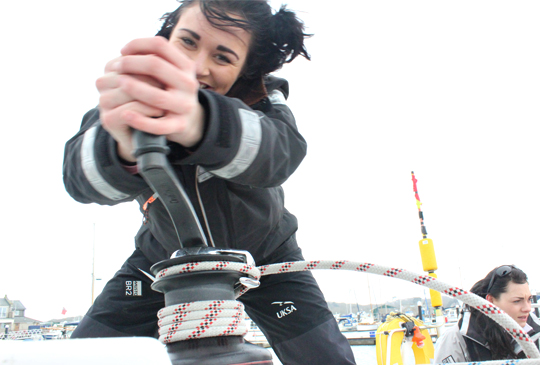
Need help finding the right course for you?
Speak to an advisor on +44 (0)1983 203001 or email us
Shushary is a Saint Petersburg Metro station on the Frunzensko-Primorskaya Line of the Saint Petersburg Metro. It was opened on 3 October 2019 as a part of the extension of the line to the south from Mezhdunarodnaya. The extension also included Prospekt Slavy and Dunayskaya stations. Shushary is the southeastern terminus of the line, behind Dunayskaya.The station was initially planned as Yuzhnaya, and the name was sometimes used in official communications.Shushary is built outside of the Saint Petersburg Ring Road, in Frunzensky District. The name refers to the settlement of Shushary.

Sygic Travel - A Travel Guide in Your Pocket

More interesting places
- Privacy Policy
- STOCK 360° TRAVEL VIDEOS

IMAGES
VIDEO
COMMENTS
About the course. The Coastal Skipper / Yachtmaster Offshore Shorebased course covers all of the theory knowledge to the standard required for the Yachtmaster Coastal and Yachtmaster Offshore practical exams, concentrating on advanced navigation and meteorology skills. The course includes:
RYA Yachtmaster Offshore exam pre-requisites. 5 passages over 60 miles long, which must include 2 overnight passages and 2 as skipper, which may be reduced to 3 passages including 1 overnight and 1 as skipper if the candidate already holds an RYA Yachtmaster Offshore Certificate of Competence 3. 1 At least half the qualifying sea time should be ...
While alongside, put the engine astern and have a look which side the prop wash emerges. The stern will kick to the other side when engaging astern. We checked the boat's pivot point too in ahead and astern, and how long the boat needed to get steerage in either direction. All of this can be done in open water.
Coastal Skipper/Yachtmaster Offshore Theory Course. Ideal for candidates for the Coastal Skipper practical course & Yachmaster Offshore exam. Some revision of the Day Skipper shorebased course plus more advanced skills in offshore & coastal navigation by day & night, pilotage & meteorology.
The RYA Yachtmaster Offshore Shorebased course is an intensive 6 days theory course (plus approx 1 day for the exams) to prepare you for the Coastal Skipper practical and a recommended learning to access the Yachtmaster Coastal/Offshore practical preparation and exam. Pre-requirements.
An RYA Offshore certifies an individual as competent to captain a vessel up to 24m in length and no more than 200 Gross Tonnes. The offshore certification is applicable passages during which the yacht is no more than 150 miles from harbour. The Yacht master offshore consists of two components: Yachtmaster Offshore Theory.
On arrival at our centre you will receive the RYA Yachtmaster Offshore shorebased pack and handbook. Those who opt for the online course will have these resources mailed to them. The course covers; The Marine Environment. There are four assessment papers, 1 for collision regulations, 1, for chart-work and 2 for passage planning.
RYA Yachtmaster Shorebased Theory Course Completion Certificate. 12 months access to study with instructor support and exams - you can extend this if you want. ... If you pass the final exams you will be awarded the RYA/MCA Coastal Skipper & Yachtmaster Offshore Shorebased Course Certificate, which will be posted to you. Additional free resits ...
This course will take your theory knowledge to the standard required for the Yachtmaster™ Coastal and Yachtmaster™ Offshore practical exams, concentrating on advanced navigation and meteorology skills. As with the Day Skipper shorebased course, the RYA's specially designed chart plotter software will be used during the course to give you ...
The syllabus is designed to take your theory knowledge to the standard required for sitting the Advanced CoC, Yachtmaster Coastal and Yachtmaster Offshore practical exams, concentrating on advanced navigation and meteorology skills. Assessment includes: chartwork assessment; collision regulations; passage making. 6 day course £495pp. Given our ...
The candidate's eligibility for Yachtmaster Offshore program is defined by a number of requirements. First and foremost, the logged sea time must show a minimum of 2500 nautical miles, about half of which should be in tidal waters. There is a huge debate as to what tidal waters are, and the RYA leaves it to the Yachtmaster candidate to decide ...
The RYA Coastal Skipper and Yachtmaster Offshore Shorebased course is for experienced sailors. The course builds on the theory learnt on the Day Skipper course, which is the knowledge level required at the outset of this course. It will give you the experience and confidence to plan and achieve your passage in offshore and coastal routes.
The preparation course is run over 5 days and designed to assess your level of competency against the RYA Yachtmaster Coastal or RYA Yachtmaster Offshore exam syllabus found in the RYA Yachtmaster Scheme Syllabus and Logbook (G158/15) and is intended to fine tune your existing skills and polish any areas of weakness prior to the exam.
This course will take your theory knowledge to the standard required for the Coastal Skipper and Yachtmaster Offshore practical exams, concentrating on advanced navigation and meteorology skills. As with the Day Skipper shorebased course, the RYA's specially designed chart plotter software will be used during the course to give you a ...
The RYA Yachtmaster Offshore qualification makes you a competent skipper of a yacht of up to 24 metres in length, in waters up to 150 miles from land. If you are qualified with RYA Yachtmaster Ocean, the difference is you can skipper a vessel of 24 metres in length and up to 200 gross tonnages anywhere around the globe.
RYA Yachtmaster Offshore exam pre-requisites. 5 passages over 60 miles long, which must include 2 overnight passages and 2 as skipper, which may be reduced to 3 passages including 1 overnight and 1 as skipper if the candidate already holds an RYA Yachtmaster Offshore Certificate of Competence 3. 1 At least half the qualifying sea time should be ...
UKSA's highly regarded Yachtmaster course opens up the most opportunities for employment within the maritime sector. These opportunities include, but are not limited to, working on superyachts, flotilla, tug boats, and employment in the Merchant Navy. 16 weeks training. 70 days afloat. 2,500 tidal miles covered.
For commercial sailors who already hold the Yachtmaster Offshore Certificate of Competence and/or Master 200 (restricted) CoC, becoming a Yachtmaster Ocean CoC, "removes the 150 mile from a safe haven" restriction you currently have. The RYA/MCA Yachtmaster Ocean shorebased course is a step towards the full RYA/MCA Ocean Yachtmaster.
Shushary (Russian: Шушары) is a Saint Petersburg Metro station on the Frunzensko-Primorskaya Line (Line 5) of the Saint Petersburg Metro.It was opened on 3 October 2019 as a part of the extension of the line to the south from Mezhdunarodnaya.The extension also included Prospekt Slavy and Dunayskaya stations. Shushary is the southeastern terminus of the line, behind Dunayskaya.
The professional degree of Masters in Oil and Gas management is offered to prepare graduates for managing the massive oil and gas projects. The degree is mainly designed to train technicians and business professionals for working together and understanding the technical and commercial operations of oil projects. The program is offered in the city of […]
To. Non-res. All-inc. RYA Yachtmaster Ocean Shorebased. 12/10/2024. 17/10/2024. £545. £695. RYA Yachtmaster Ocean Shorebased.
Shushary, Saint Petersburg. Coordinates: 59°48′50″N 30°23′08″E. Shushary railway station. Shushary ( Russian: Шуша́ры, from Finnish Suosaari, "marshy island") is a municipal settlement in Pushkinsky District of the federal city of St. Petersburg, Russia, located on the slopes of the Pulkovo Heights. Population: 22,652 ( 2010 ...
Shushary is a Saint Petersburg Metro station on the Frunzensko-Primorskaya Line of the Saint Petersburg Metro. It was opened on 3 October 2019 as a part of the extension of the line to the south from Mezhdunarodnaya. The extension also included Prospekt Slavy and Dunayskaya stations. Shushary is the southeastern terminus of the line, behind Dunayskaya.The station was initially planned as ...